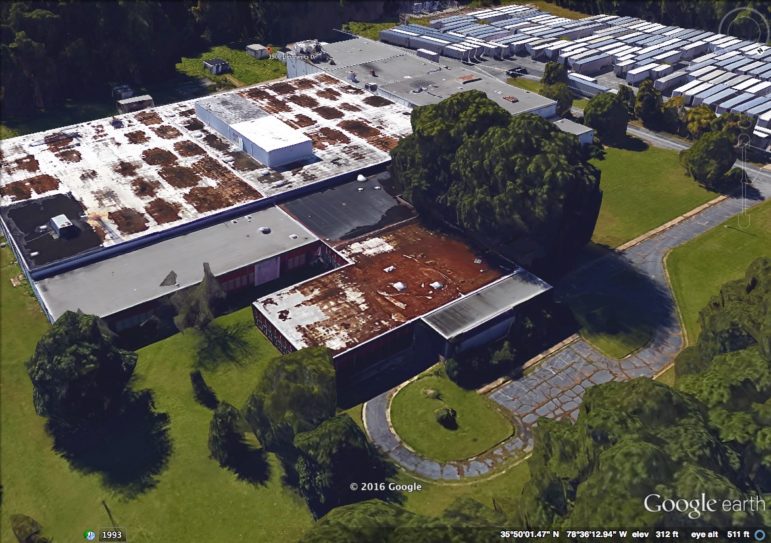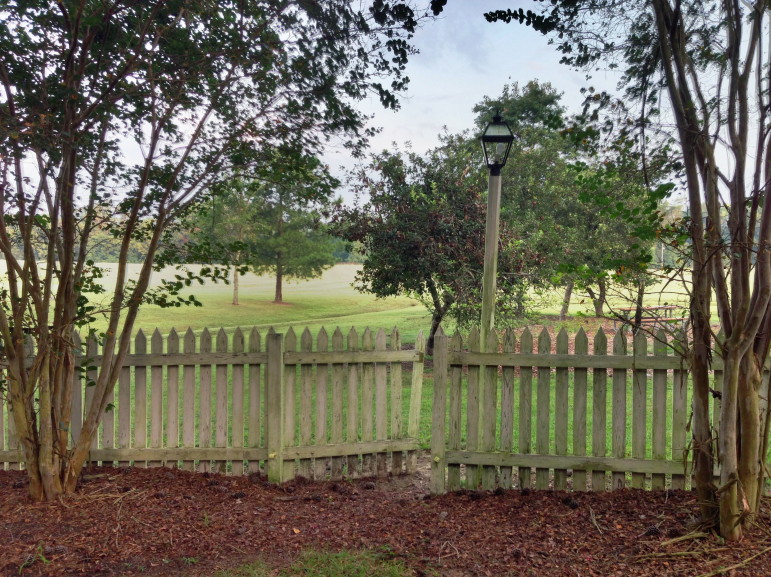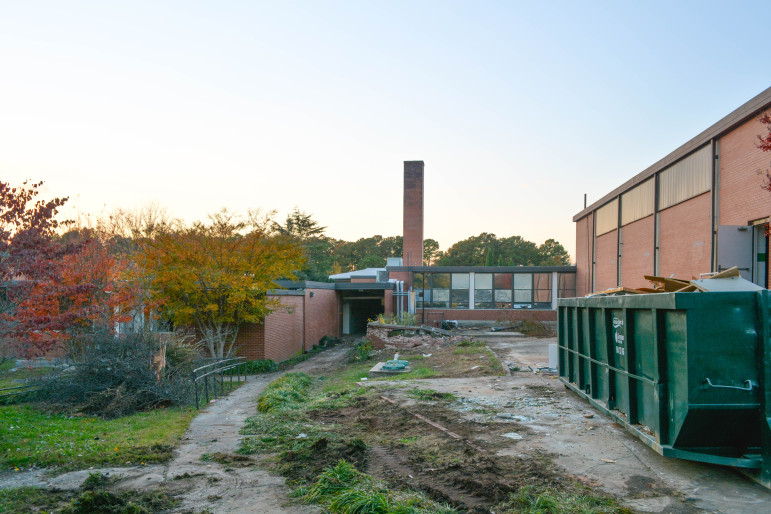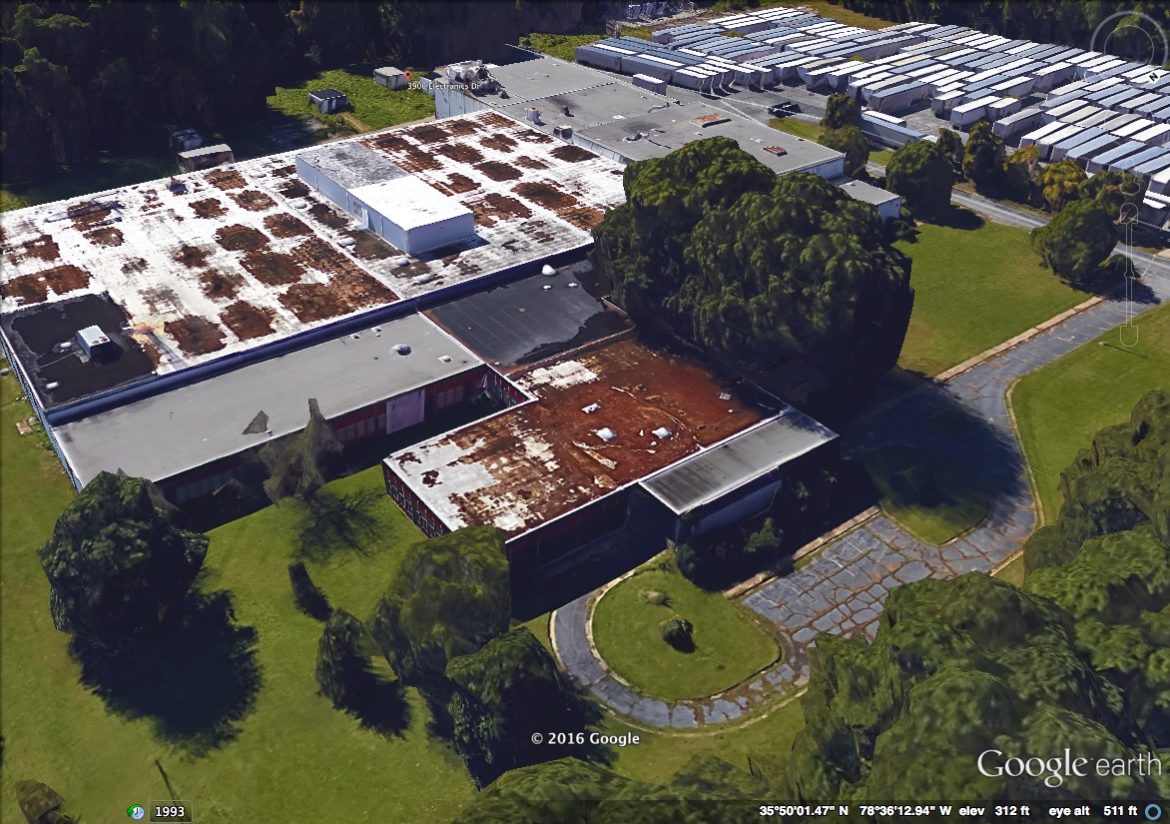Brought to you by Rufty-Peedin Design Build
Tuesday, May 24, 2016
A 1960s-era manufacturing plant that sits on an 11-acre Superfund site off Atlantic Avenue in central Raleigh will soon be no more.
In 1987, the AVX Corporation purchased the 32-acre property, located on Electronics Way and near the intersection of Atlantic and New Hope Church that since 1964 had been home to Corning Glass Works.

Google Earth
The site of the manufacturing plant
AVX would go on to manufacture capacitors at the site for more than 20 years before shuttering its doors for good. Both AVX and Corning are still in business, just not here in Raleigh.
So what’s next for this prime piece of real estate? Glad you asked.
In March of 2015, AVX began working to sell the property to Wake County Schools, which was looking to build a new high school in the area. The board initially agreed to purchase the land for $4.5 million, on the condition that it passed an environmental review study.
It failed.
On October 6 2015, the Wake County School Board voted to transfer the land back to AVX. On October 15, 2015, AVX filed suit against Corning, arguing that an injection well Corning had installed on the property had caused hazardous materials to leak into the groundwater. AVX claimed Corning knew of the impacts at the time of the sale, and had agreed to take steps to mitigate them.
Despite these efforts, AVX said in its complaint that the studies conducted by Wake County Schools revealed “The presence of hazardous substances and other constituents in the soil and groundwater” and that pollution from the well appeared to be spreading east. Corning, AVX, said, was supposed to remain responsible for any negative environmental impacts on the site.
The site had been monitored by the state since 1992, when groundwater contamination cleanup efforts began. The recent analysis of the property had allegedly turned up trichloroethylene, tetrachloroethane, toluene and other volatile organic compounds in the groundwater.
Although Corning had entered into an agreement in September 2015 with the North Carolina Department of Environmental Quality in September to address pollution on an 11-acre section of the property, AVX said this did not address the entire problem, as the remaining 22 acres were not included.
While it’s generally hazardous building materials such as asbestos that demolition crews have to worry about in older buildings, we’re not exactly sure what kind of precautions are necessary for a demo at a superfund site. Don’t drink the water? Don’t take a mud bath in the soil? No fishing?
As the contractor responsible for the $614,370 job goes by the name Environmental Holdings Group, we’re pretty sure they know what the potential hazards are. While it doesn’t look like there’s going to be a school built on the site anytime soon, once the environmental hazards are dealt with, this is a pretty desirable parcel of land.
Although there were two other demolition permits issued last week, neither warrants much attention. The first was for a small job at the Horseshoe Farm Nature Preserve, which has been undergoing a redevelopment process for quite some time. We first covered this way back in September of 2013. Riggs Harrod Builders will be handling the small $1,000 demolition project out there.

James Borden / Raleigh Public Record
The Horseshoe Farm Nature Preserve Park
The other demolition permit from last week was a reissue for Green Elementary School. When we did the new building report yesterday, we noted that the permit for the new school had been reissued; the same goes for the demolition permit issued in November 2014 for the former school.
The 72,213 square-foot structure was torn down by Balfour-Beatty Construction. The new Green Elementary School is expected to open in time for the upcoming 2016-2017 school year.

James Borden / Raleigh Public Record
Demolition was underway at the former Green Elementary School back in 2014
